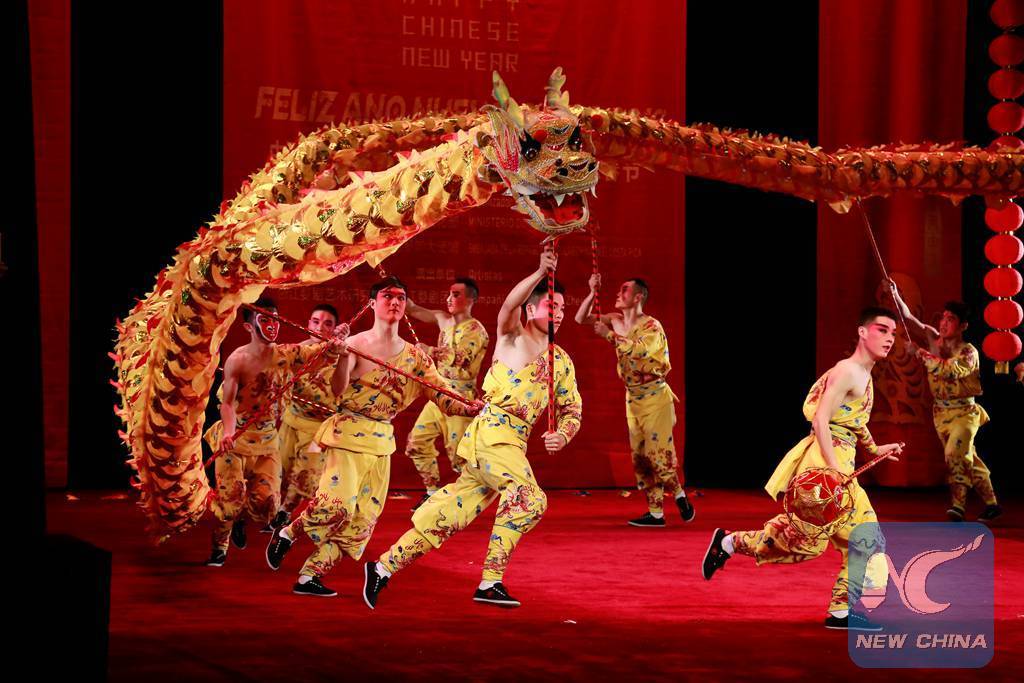
Artists of the Zhejiang Wu Opera Group of China, perform in the celebration of the Chinese Lunar New Year in the National Theatre, in the city of San Jose, capital of Costa Rica, on Jan. 22, 2016. The Chinese Lunar Calendar gives an animal symbol to each year in a 12 year cycle. (Xinhua/Kent Gilbert)
HAVANA, Jan. 15 (Xinhua) -- The Chinese community in Cuba's capital Havana this weekend launched celebrations marking the arrival of the New Lunar Year, which falls on Jan. 28.
Havana's Chinatown, one of the oldest in Latin America, on Saturday hosted the opening of an exhibit on the Chinese zodiac and 2017, the Year of the Rooster.
It was the first of several events leading to what is also known as the Spring Festival observed by the Chinese people.
Revelers gathered in the district's House of Chinese Arts and Traditions, which hosts conferences, book presentations and other cultural events, including the traditional dragon dance performed here by students of the Cuban School of Wushu.
The exhibit features 15 large-scale paintings of the 12 signs of the zodiac, each represented by an animal, and other iconic images of the Chinese culture, such as the phoenix and the panda.
Chen Xi, China's ambassador to Cuba, underscored the strong friendship between the governments and peoples of both countries.
Amid the celebrations which will continue through Feb. 12, China and Cuba will also mark 170 years of Chinese presence in Cuba.
The first Chinese arrived in Cuba in 1847, when the island was a Spanish colony, as hired hands to work on sugar plantations.
Though many came to work and save in order to go back to China, their slave conditions made it virtually impossible for most of them to pay off their debts and return.
The opening was sponsored by the Confucius Institute at the University of Havana and the Casino Chung Wah, one of 13 community organizations active in Havana's Chinatown.
These organizations were originally established along patronymic, religious or regional lines.

